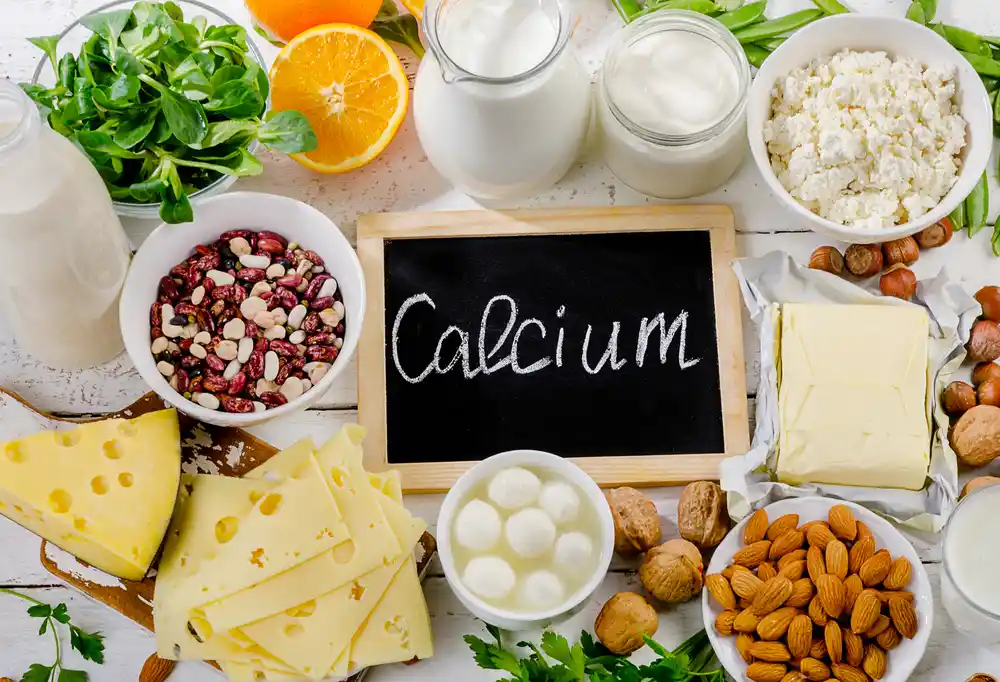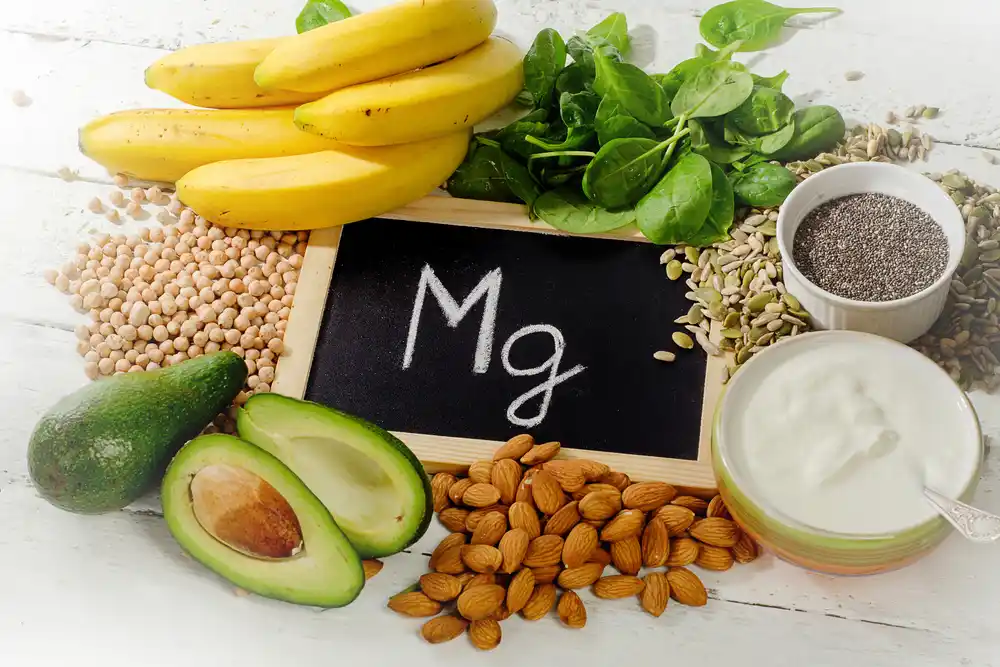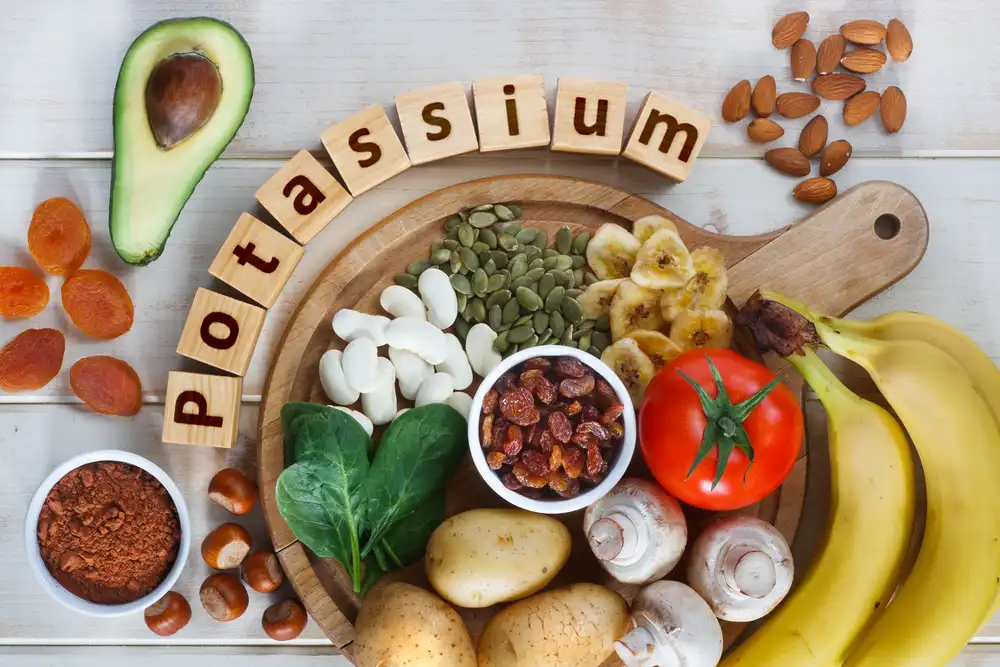8 Key Minerals Essential for Health
The role of minerals in the body
Minerals are essential nutrients that play a crucial role in maintaining overall health and well-being. They are required for various biological processes and are involved in the formation of bones, teeth, and blood cells. Minerals also help regulate metabolism, nerve function, and fluid balance in the body. While minerals are needed in small amounts, they are vital for optimal health. Here are eight key minerals that are essential for the body’s proper functioning.
1. Calcium
Calcium is an essential mineral for maintaining strong and healthy bones. It plays a vital role in various bodily functions and is particularly important during childhood and adolescence when bones are growing rapidly. Here are some benefits of calcium for bone health:
- Maintaining bone density: Calcium helps build and strengthen bones, reducing the risk of osteoporosis and fractures later in life.
- Promoting nerve and muscle function: Calcium is required for nerve transmission and muscle contraction.
- Supporting blood clotting: Calcium is involved in the process of blood clotting, preventing excessive bleeding.
Some common food sources that are rich in calcium include:
- Dairy products: Milk, cheese, and yoghurt are high in calcium.
- Leafy green vegetables: Broccoli, kale, and spinach are good plant-based sources of calcium.
- Fortified foods: Certain foods such as cereals and tofu are often fortified with calcium.
- Nuts and seeds: Almonds and sesame seeds are examples of calcium-rich nuts and seeds.

2. Magnesium
The importance of magnesium for various bodily functions
Magnesium is an essential mineral that plays a vital role in many bodily functions. Here are some of its key functions:
- Energy production: Magnesium is involved in the production and utilization of energy in the body. It helps convert food into usable energy and is required for the functioning of enzymes involved in energy metabolism.
- Muscle function: Magnesium is necessary for proper muscle function and relaxation. It helps regulate neuromuscular signals and is involved in the contraction and relaxation of muscles.
- Bone health: Magnesium is crucial for maintaining strong and healthy bones. It works in conjunction with other minerals, such as calcium and vitamin D, to support bone formation and regulate bone mineral density.
- Heart health: Magnesium plays a role in maintaining a healthy heart. It helps regulate the electrical impulses that control the heartbeat and supports the relaxation of blood vessels, helping to maintain healthy blood pressure.
- Mental health: Adequate magnesium levels are essential for optimal brain function and mental health. It is involved in neurotransmitter synthesis and helps regulate mood, stress, and sleep.
- Regulation of blood sugar: Magnesium is involved in insulin secretion and can help regulate blood sugar levels. It helps improve insulin sensitivity and may reduce the risk of developing type 2 diabetes.
Common signs of magnesium deficiency
Magnesium deficiency is relatively common, and some signs and symptoms that may indicate a deficiency include:
- Muscle cramps and spasms: Magnesium plays a role in muscle relaxation, so deficiency may lead to muscle cramps, spasms, or twitches.
- Fatigue and weakness: Inadequate magnesium levels can contribute to feelings of fatigue and weakness.
- Irregular heartbeat: Magnesium deficiency may disrupt the electrical impulses that control the heartbeat, leading to irregular heart rhythms or palpitations.
- High blood pressure: Magnesium helps relax blood vessels, so low levels may contribute to high blood pressure.
- Mood changes: Magnesium is involved in neurotransmitter production and can affect mood. Deficiency may contribute to mood swings, anxiety, or depression.
- Poor bone health: Inadequate magnesium levels may negatively impact bone health and increase the risk of osteoporosis.
If you suspect a magnesium deficiency, it is essential to consult with a healthcare professional for proper diagnosis and treatment. They can recommend dietary changes or supplementation to help restore optimal magnesium levels in the body.

3. Potassium
Health benefits of potassium
Potassium is an essential mineral that plays a vital role in various bodily functions. Here are some key health benefits of potassium:
- Heart Health: Potassium helps regulate heart function and maintains a healthy heartbeat. It plays a crucial role in maintaining proper electrical balance in the heart, preventing irregular heart rhythms.
- Blood Pressure Management: Potassium helps lower blood pressure by counteracting the effects of sodium. It helps relax the blood vessels, reducing strain on the cardiovascular system.
- Fluid Balance: Potassium is involved in maintaining the body’s fluid balance. It works in conjunction with sodium to regulate water levels in the cells and tissues.
- Muscle Function: Potassium is essential for proper muscle function, including the contraction and relaxation of muscles. It helps prevent muscle cramps and supports overall muscle health.
- Bone Health: Potassium plays a role in maintaining strong and healthy bones. It helps prevent the loss of calcium from the body, reducing the risk of osteoporosis.
- Kidney Function: Potassium is critical for proper kidney function. It helps maintain the balance of fluids and electrolytes in the body and supports the elimination of waste products through urine.
Effects of Potassium on blood pressure
Potassium has a significant impact on blood pressure levels. Here’s how it affects blood pressure:
- Blood Pressure Regulation: Potassium helps lower blood pressure by countering the effects of sodium. It promotes the excretion of sodium through urine and relaxes the blood vessels, reducing the resistance to blood flow.
- Lowering Sodium’s Effects: High sodium intake can lead to high blood pressure, but adequate potassium levels can help offset these effects. A diet high in potassium and low in sodium is beneficial for maintaining healthy blood pressure levels.
- Reduced Risk of Hypertension: Adequate potassium intake has been associated with a reduced risk of developing hypertension, a leading risk factor for heart disease and stroke.
- Supports Healthy Blood Vessels: Potassium helps relax the walls of blood vessels, promoting smooth blood flow and reducing the strain on the cardiovascular system.
It’s important to maintain a balanced diet that includes potassium-rich foods such as bananas, avocados, spinach, and sweet potatoes to ensure adequate potassium intake and support overall health.

4. Iron
The Role of Iron in oxygen transportation and energy production
Iron is an essential mineral that plays a vital role in the body. It is a key component of haemoglobin, the protein in red blood cells that carries oxygen from the lungs to the rest of the body. Iron also plays a crucial role in energy production, as it is involved in the synthesis of adenosine triphosphate (ATP), which is the main source of energy for the body’s cells.
When iron levels are adequate, oxygen can efficiently bind to haemoglobin and be transported throughout the body. This ensures that all body tissues receive the oxygen they need to function properly. Iron is also involved in the electron transport chain, a series of reactions that occur within the mitochondria of cells and are essential for the production of ATP.
Symptoms of iron deficiency anaemia
Iron deficiency can lead to a condition called iron deficiency anaemia, which is characterized by low levels of haemoglobin and red blood cells in the body. Some common symptoms of iron deficiency anaemia include:
- Fatigue and weakness
- Pale skin
- Shortness of breath
- Dizziness
- Headaches
- Cold hands and feet
- Brittle nails
- Difficulty concentrating
- Increased susceptibility to infections
Iron deficiency anaemia can have a significant impact on overall health and well-being. It is important to ensure an adequate intake of iron through a balanced diet or supplementation to prevent deficiency and maintain optimal health.
5. Zinc
Functions and Benefits of Zinc in the Body
Zinc is an essential mineral that plays a crucial role in various physiological processes in the body. Here are some functions and benefits of zinc:
- Immune Function: Zinc is necessary for the normal development and function of immune cells, helping to support a healthy immune system.
- Growth and Development: Zinc is involved in DNA synthesis, cell division, and protein synthesis, which are essential for growth and development in children and adolescents.
- Wound Healing: Zinc is important for wound healing and tissue repair, as it helps with collagen synthesis.
- Cellular Defense: Zinc acts as an antioxidant, protecting cells from oxidative damage caused by free radicals.
- Taste and Smell: Zinc is required for the proper functioning of taste and smell receptors.
- Reproductive Health: Zinc is involved in the production and maturation of sperm, as well as hormone regulation and fertility in both men and women.
Sources of zinc in the diet
Zinc can be obtained from a variety of food sources. Here are some examples:
- Animal-Based Foods: Good sources of zinc include red meat, poultry, fish, and shellfish.
- Legumes and Grains: Legumes such as chickpeas, lentils, and beans, as well as whole grains like wheat, rice, and oats, contain zinc.
- Nuts and Seeds: Almonds, cashews, pumpkin seeds, and sesame seeds are all sources of zinc.
- Dairy Products: Milk, cheese, and yoghurt also contain zinc.
- Fortified Foods: Some breakfast cereals and plant-based meat substitutes are fortified with zinc.
It’s important to note that the bioavailability of zinc can vary depending on the food source. To ensure you’re getting enough zinc, it’s recommended to consume a varied diet that includes a combination of these food sources.
6. Selenium
The importance of selenium as an antioxidant
Selenium is an essential mineral that acts as a powerful antioxidant in the body. It helps protect cells from damage caused by free radicals, which are harmful molecules that can contribute to chronic diseases such as cancer and heart disease. Moreover, selenium plays a crucial role in the functioning of the immune system, hormone production, and thyroid function.
Recommended daily intake of selenium
The recommended daily intake of selenium varies depending on age, sex, and specific health conditions. For most adults, the recommended daily intake of selenium is around 55 micrograms (mcg). Pregnant and breastfeeding women may require slightly higher amounts.
It’s important to note that excessive selenium intake can be harmful. Health authorities advise against exceeding the tolerable upper intake level (UL) of 400 mcg per day.
To ensure you get enough selenium in your diet, you can incorporate selenium-rich foods such as Brazil nuts, seafood, poultry, eggs, and whole grains. Supplementation should only be considered under the guidance of a healthcare professional.
7. Iodine
Iodine is a key mineral that plays a crucial role in thyroid function and metabolism. The thyroid gland relies on iodine to produce thyroid hormones, which are essential for regulating metabolism, growth, and development. Iodine deficiency can lead to thyroid disorders, including goitre and hypothyroidism.
The Role of iodine in thyroid function and Metabolism
Iodine is an essential component of thyroid hormones, such as thyroxine (T4) and triiodothyronine (T3). These hormones are responsible for regulating metabolism, body temperature, heart rate, and growth. The thyroid gland traps iodine from the bloodstream and converts it into thyroid hormones. Without sufficient iodine, the thyroid gland cannot produce enough thyroid hormones, leading to an imbalance that can affect multiple body functions.
Sources of iodine in the diet
The primary dietary sources of iodine include:
- Seafood, such as fish, shrimp, and seaweed, is a rich source of iodine.
- Dairy products, such as milk, cheese, and yoghurt, may contain iodine if the animals were fed iodine-rich feed.
- Iodized salt, which is fortified with iodine, is a common source of iodine in many countries.
- Eggs and certain fruits and vegetables, such as strawberries and potatoes, may contain small amounts of iodine.
It’s important to ensure an adequate intake of iodine through a varied and balanced diet. Individuals who do not consume enough iodine-rich foods may consider iodine supplements, especially during pregnancy, as iodine is crucial for the development of the fetal brain and nervous system.
8. Manganese
Health Benefits and Functions of Manganese
Manganese is an essential mineral that plays a crucial role in several bodily functions. Here are some key health benefits and functions of manganese:
1. Bone Health: Manganese helps in the formation and maintenance of strong and healthy bones.
2. Antioxidant Activity: Manganese is a component of various antioxidant enzymes that protect our cells from damage caused by free radicals.
3. Nutrient Metabolism: Manganese is necessary for the metabolism of nutrients such as carbohydrates, amino acids, and cholesterol.
4. Energy Production: Manganese is involved in the production of energy from the breakdown of carbohydrates and fatty acids.
5. Brain Health: Manganese contributes to normal brain function and helps in the synthesis of neurotransmitters.
6. Wound Healing: Manganese is essential for the proper synthesis of collagen, which is necessary for wound healing.
7. Blood Sugar Regulation: Manganese is involved in the metabolism of carbohydrates and helps regulate blood sugar levels.
8. Thyroid Function: Manganese is required for the synthesis and activation of thyroid hormones.
Manganese-rich foods to include in your diet
If you want to ensure an adequate intake of manganese, include these manganese-rich foods in your diet:
- Nuts and seeds: Almonds, hazelnuts, and pumpkin seeds are excellent sources of manganese.
- Whole Grains: Oats, brown rice, and quinoa are rich in manganese as well as other essential nutrients.
- Legumes: Beans, lentils, and chickpeas are not only good sources of protein but also provide manganese.
- Leafy Green Vegetables: Spinach, kale, and chard are not only packed with vitamins but also contain manganese.
- Seafood: Mussels, clams, and shrimp are seafood options that contain manganese.
- Fruits: Pineapples, bananas, and berries are fruits that provide manganese.
Including these foods in your diet can help you meet your daily requirements of manganese and support overall health and well-being.
The significance of consuming a balanced diet to meet mineral needs
In conclusion, consuming a balanced diet that includes a variety of mineral-rich foods is essential for maintaining good health. Minerals play a vital role in various bodily functions, from building strong bones and teeth to supporting the immune system. By ensuring adequate intake of these key minerals, individuals can promote optimal health and well-being.
Tips for incorporating mineral-rich foods into your daily meals
Here are some tips for incorporating mineral-rich foods into your daily meals:
- Include a variety of fruits and vegetables in your diet, as they are excellent sources of minerals such as potassium, magnesium, and zinc.
- Choose whole grains over refined grains, as they retain more of their mineral content.
- Incorporate lean protein sources such as poultry, fish, and beans, which provide essential minerals like iron and zinc.
- Snack on nuts, seeds, and dried fruits, as they are packed with minerals like calcium, magnesium, and phosphorus.
- Experiment with herbs and spices, such as turmeric and cinnamon, which not only add flavour but also offer valuable minerals like manganese and copper.
By following these tips and making conscious choices to include a diverse range of mineral-rich foods in your meals, you can ensure that your body receives the necessary minerals to support optimal health.
Remember to consult with a healthcare professional or registered dietitian for personalized advice regarding your specific dietary needs and any mineral deficiencies you may have.